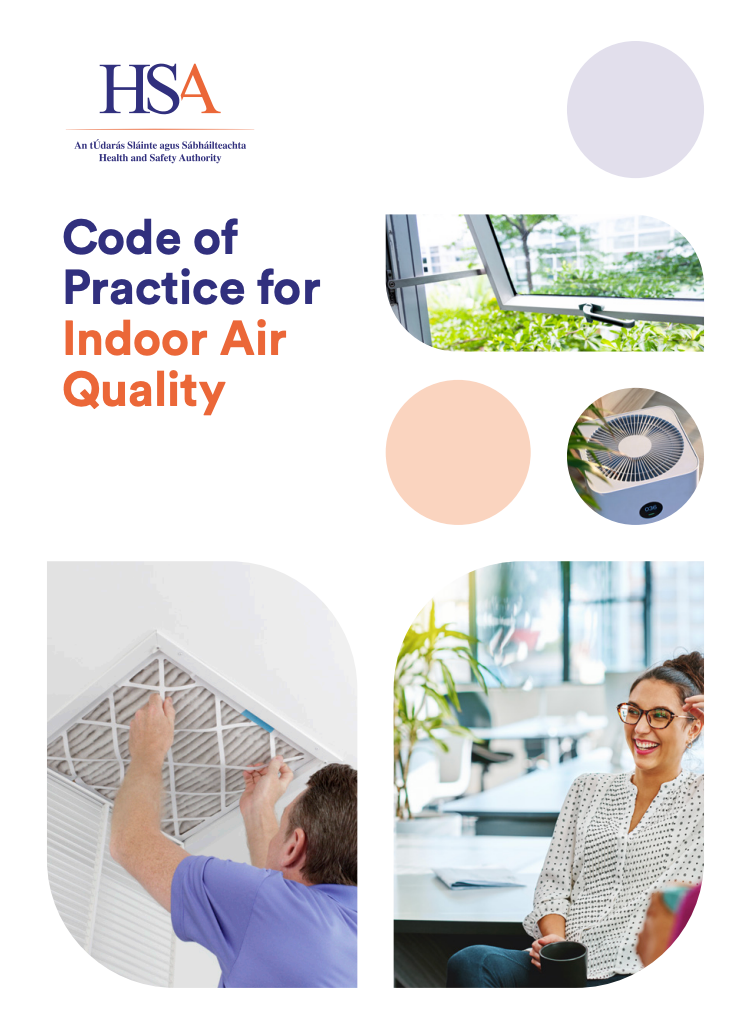We all agree that what we eat and drink is important. A healthy diet is crucial to our health, and that's why many of us spend a great deal of time thinking about what we put in our bodies. Yet, we don't give the same level of attention to the air we breathe in. However, we breathe in far more than we ever eat or drink. And the impact of what we breathe can be drastic. Just like a poor diet, if the air we “consume” is bad quality, the effects on our physical and mental health can be dire and even fatal.
What Is Bad Air Quality
It is clear that bad air quality is a severe issue. But what actually is bad air quality? Air quality refers to the composition of the air. The health risks outlined below result from too many air pollutants and prolonged exposure to them. Pollutants come in many forms, including:
- Biological pollutants
- Carbon monoxide (CO)
- Carbon dioxide (CO2)
- Nitrogen dioxide (NO2)
- Volatile organic compounds (VOCs)
- Ozone (O3)
The Health Risks Of Bad Air Quality
The pollutants we breathe in can have a damaging effect on several key organs and systems within the body. For many, the most likely thing to come to mind will be the lungs. And though the lungs and respiratory system are certainly at risk, your eyes, nose, throat, and heart can all be affected too. Public Health England also states, "Emerging evidence suggests that air pollution may also affect the brain”.
Air pollutants can lead to coughing and shortness of breath in the short term. It can also exacerbate asthma. And over an extended period, they can contribute to respiratory problems, cardiovascular disease and other serious health conditions.
Air quality affects us at all stages of life. It has been linked to low birth weight. In childhood, it can result in slowed lung function development. And for adults, the results can be as severe as a stroke or lung cancer. Air quality is also associated with dementia, heart attacks, and lung function decline in later years.
The Committee on the Medical Effects of Air Pollutants (COMEAP) has observed that by increasing the risks of cancers, cardiovascular disease, and respiratory disease, air pollution contributes to thousands of deaths in the UK. Some estimates place this number between 28,000 and 36,000 deaths annually.
In addition to the link between air pollution and cognitive decline in later years, the toll on cognitive function can be seen much earlier. Research suggests air quality can negatively affect children's ability to learn and their productivity. There is also a correlation between air quality and mental health, with research suggesting it plays a role in conditions such as depression.
With the impacts of air quality extending to our mental health, it is proven to be a wide-reaching threat which poses risks to all areas of our health and wellness. Combined with its ever-present nature, it is one of the foremost health challenges we face.
Indoor Air Quality
When we talk about air pollution, it likely conjures up ideas of vehicles spewing fumes into the air. And whilst this is undoubtedly a factor, outdoor air quality is only one side of the issue. Much of our time is spent indoors, in social settings such as work offices, gyms, schools, and shops. Though the problem is very real and the risks are significant, the fact that indoor air quality is such a large part of the issue is reassuring. Unlike outdoor air quality, we can take greater ownership of indoor space and make practical changes to improve the air quality in many of the most commonly occupied spaces. In fact, not only can we improve indoor air quality, in some cases it is a legal requirement. We must meet air purifying legislation, which includes The Control of Substances Hazardous to Health (COSHH) regulations requiring employers to assess risks to employees.
Identifying Poor Air Quality
Part of the issue with air quality is that so few of us know what's in the air we breathe. Without proper air quality tests, it can be almost impossible to tell. To continue the comparison to the food we consume - food is often labelled. It includes nutritional values, lists of allergens and much more. And all of this information is crucial to helping us make intelligent choices about what we eat and drink. So when aiming to improve the quality of the air we breathe, a great starting point is to be as equally informed and understand the makeup of the air around us.
An internal air quality assessment and dust inhalation risk assessment will serve as a risk assessment for indoor air quality. It will establish a baseline for the quality of the air and identify what pollutants are present. Armed with this invaluable information, an air quality specialist can recommend the right air quality management system.
Improving Air Quality
There are a number of measures you can take to improve indoor air quality. Though a risk assessment will highlight specific needs and an air quality specialist can match those to more tailored solutions the broad ideas and approaches are the same.
A great starting point is to focus on avoiding the ingress of outdoor pollutants.
Firstly, to tackle outdoor emissions there are three main areas to address; ventilation, filtration, and keeping your building “airtight”. For ventilation, positioning is vital. If placed too close to ground pollutants, such as near a busy road with high car emissions, you will bring many pollutants into the building. Placing ventilation intake on the roof is often a more suitable option.
Even well-positioned ventilation will permit some level of contaminants into a building. To mitigate this, you can utilise filters which trap the pollutants.
HEPA filters are the recognised standard for high-quality filters as they can capture large particles (such as pollen and mould spores) and smaller particles (such as chemicals and fossil fuels).
Finally, to prevent emissions from entering your building, keep it airtight or as close as you can get. This means keeping windows shut, which may seem counterintuitive. It may be your first impulse to open a window to allow bad quality air to escape. However, this is merely an invitation for more polluted outdoor air to enter the building. With the correct ventilation and filtration, the air in the building will be far cleaner than that from outside, so allowing outdoor air in should be avoided where possible.
The next area to address is indoor pollutants. Again, you will require ventilation, expelling pollutants where avoiding them is not possible such as those from cooking. Filtration will also be essential. Capturing pollutants with filters in your HVAC system will prevent them from being recirculated throughout the building. Whilst ventilation and filtration are key to dealing with pollutants in the air, you should also take measures to reduce pollutants from being emitted indoors.
Learn More About Air Quality
If you’re interested in learning more about air pollution, its effects and how to improve it visit our blog. We have many useful guides, filled with information and advice. Here are some top picks for your next read;
- Air Filters Vs Air Purifiers: Which Is Better?
- The Significance Of Good Air Quality In A Post - Pandemic World
- The Dangers of Dust in the Workplace







